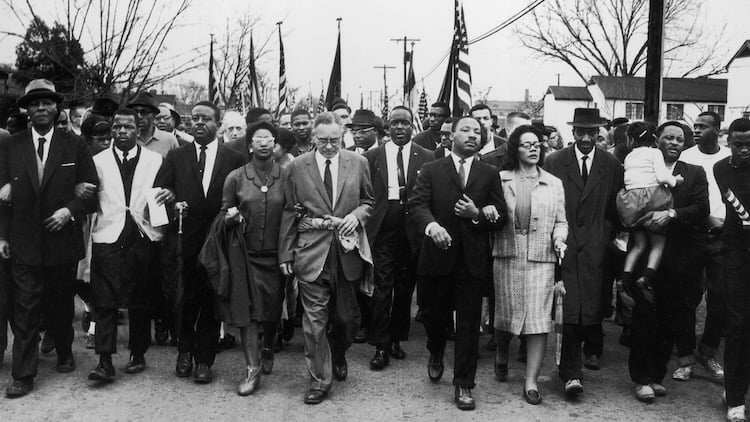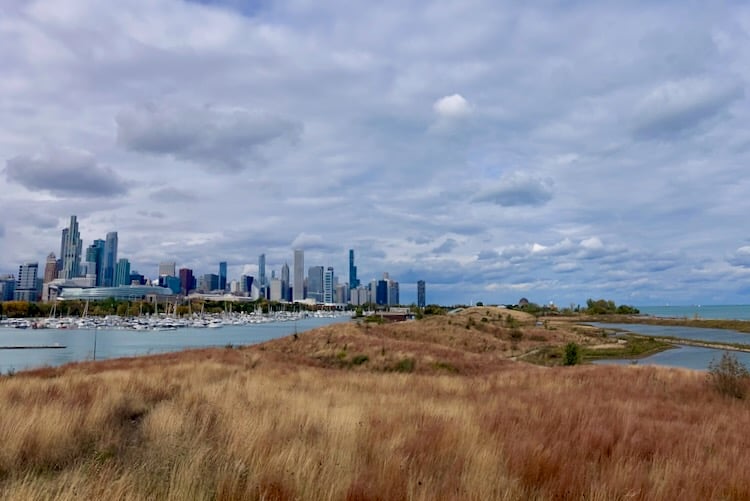Placing Our Protest
Circumstances change but our dissent endures

Previously, I made the case that Christians are, by nature, protesting people. Our dissent begins in prayer and carries into a world which is often at crosscurrents with God’s vision of flourishing for all of creation, including its most vulnerable people. In addition to recognizing this part of our identity, understanding the place of protest for Christians also involves identifying our context.
Sometimes, after pointing fellow-Christians to examples in our scriptures which can motivate our decision to protest injustice, I’ve been told that our context in a modern Western democracy is too different from the social locations experienced by those we read about in the Bible. Their point, a good one in my opinion, is that easy equivalents between such different times and places cannot so easily be made. There are two especially important contextual differences we should reckon with.
First, many of the examples of protest in both the Old and New Testaments take place within the context of empire. In Reading Revelation Responsibly, Michael Gorman defines empire as,
An entity that has come to widespread (global or nearly global) dominance through deliberate expansion by means of the extreme exercise of some form(s) of power–economic, political, military, and/or religious–resulting in the creation of colony-like clients of the entity and of enemies who perceive the entity as oppressive.
Sometimes God’s people in Scripture were besieged, captured, and exiled by an empire; other times they were living as subjects scattered throughout the empire. It’s safe to say that many of the examples of godly protest we find in the Bible take place in response to the injustices of empire.
Leaving aside the many similarities shared between U.S. government and Gorman’s definition of empire, our political context is very different than the ones God’s people endured in Scripture. That most Americans can vote for our representatives and senators is but one obvious difference. Unlike our Jewish and Christian fore-bearers, our political context is one of representative government, however imperfectly implemented.
Another important contextual difference is the role of Christianity in the U.S. With threads reaching beyond the nation’s founding, Christianity has long provided language, assumptions, and symbols for the country and those who govern it. Things couldn’t have been more different for the first Christians. Their doctrine and ethics, liturgy and hymnody were utterly foreign to imperial culture. Just imagine the dissonance should one of those early Christians be transported to an American truck stop in 2025 and find racks of “Jesus Is My Savior, Trump Is My President” merchandise!
While the best those overlooked and sometimes persecuted Christians could hope for was that the empire would overlook them, American Christians, especially white Christians, have often pulled the levers of government to advance their aims and protect their values.
Recognizing just how different U.S. politics are from the imperial, pagan culture the Christians of Scripture faced leads some to believe that the protest we find in the Bible has no place in a representative democracy shaped by Christianity. The contextual differences, they claim, are simply to great.
One of our greatest American protestors, a Christian and a pastor, would disagree. Responding to those who appealed to the nature of U.S. government as a reason not to protest, Rev. Dr. Martin Luther King, Jr. turned their argument on its head. From the Lincoln Memorial in August, 1963, King explained,
When the architects of our republic wrote the magnificent words of the Constitution and the Declaration of Independence, they were signing a promissory note to which every American was to fall heir. This note was a promise that all men, yes, black men as well as white men, would be guaranteed the "unalienable Rights" of "Life, Liberty and the pursuit of Happiness." It is obvious today that America has defaulted on this promissory note, insofar as her citizens of color are concerned.
And what about the Christians – again, white Christians – who pointed to the nation’s supposedly Christian character as proof that the Civil Rights Movement was unnecessary? That their tactics were too extreme? Answering this assertion from a Birmingham jail cell, King turned to the Bible.
But though I was initially disappointed at being categorized as an extremist, as I continued to think about the matter I gradually gained a measure of satisfaction from the label. Was not Jesus an extremist for love: “Love your enemies, bless them that curse you, do good to them that hate you, and pray for them which despitefully use you, and persecute you.” Was not Amos an extremist for justice: “Let justice roll down like waters and righteousness like an ever flowing stream.” Was not Paul an extremist for the Christian gospel: “I bear in my body the marks of the Lord Jesus.”
King, and many other U.S. Christians, typically outside of the power centers of American Christianity, make plain that acknowledging the particularities of our context doesn’t diminish our protesting identity. While our circumstances will shape the tenor and content of our dissent, they don’t have the power to shut our protest down.
Plundered Lecture at Wheaton College
If you happen to live in the western suburbs of Chicago, it’d be great to see you at a lecture I’ll be giving this Wednesday evening, November 19, at Wheaton College. Beginning at 6:30 in the Meyer Science Center, room 145, I’ll be followed by another speaker who will present about Palestinians who’ve been cut off from their orchards by Israeli occupation.
The View From Here

The skyline was looking extra dignified from Northerly Island a couple of weekends ago. I’m a fan of every Chicago season, but there’s something undeniably special about autumn.